Against the odds, David Gerger and Tom Melsheimer separately won acquittals for their clients in two of the nation’s most high-profile white-collar trials of 2022.
The two renowned trial lawyers, who’ve known each other since attending the University of Texas School of Law together in the 1980s, discussed last year’s big wins and shared a few courtroom pointers during a panel discussion at Southern Methodist University titled, appropriately, “Bad Case/Good Outcome: Defending (and Winning) When the Government Comes for Your Client.” (For this story, some quotes from the 75-minute session were edited for brevity and clarity.)
The continuing legal education session was jointly hosted by The Texas Lawbook and SMU’s Dedman School of Law on Feb. 27. It was moderated by U.S. District Judge Ada Brown of Dallas, herself a former trial lawyer with nine-figure jury verdicts to her name at McKool Smith, where she handled complex commercial litigation and intellectual property disputes.
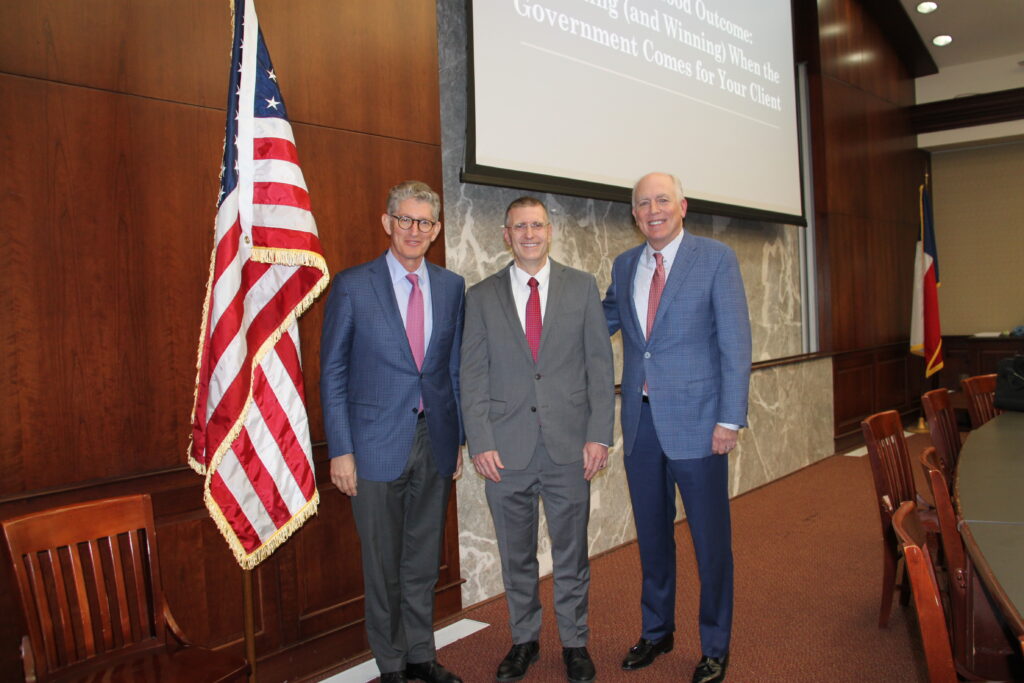
David Gerger, SMU Dedman School of Law Dean Jason Nance, Tom Melsheimer
In March 2022, Gerger, a founding partner at Gerger Hennessy & Martin of Houston, together with veteran Fort Worth trial lawyer Jeff Kearney, successfully defended the only individual charged with a crime in connection with the Boeing Co.’s troubled rollout of its 737 Max airliner. The plane’s flight control system was implicated in two fatal crashes within five months of each other, killing 346 people in all. Federal prosecutors contended that Gerger’s client, Boeing pilot Mark Forkner, deceived the Federal Aviation Administration by withholding information about flaws in the jet’s cockpit software. Forkner, Boeing’s chief technical pilot for the Max during its development, was charged with four counts of wire fraud. After deliberating less than two hours, jurors in the Fort Worth court of U.S. District Judge Reed O’Connor found the pilot not guilty.
The next month, Melsheimer, managing partner of the Dallas office of Winston & Strawn, led the trial defense team for Kent Thiry, the former CEO of DaVita Inc., one of the nation’s largest kidney dialysis providers. Thiry and the Denver-based company were accused of conspiring with two other dialysis providers to suppress competition in violation of the Sherman Antitrust Act by agreeing not to raid each other’s executives and top managers. It was the first criminal trial ever on labor-related antitrust charges, a novel (many said overreaching) application by the Justice Department of the 132-year-old act. Both DaVita and Thiry were acquitted by a jury in the Denver court of Senior U.S. District Judge Brooke Jackson.
Both defense teams had to overcame substantial evidentiary obstacles.
Texts and emails from DaVita and the other dialysis providers irrefutably showed they’d agreed not to poach one another’s top employees — and to impose other conditions that could restrict job-hopping. For example, managers at any one of the companies had to notify their current employer before seeking a job with one of the others, or their applications would not be considered. The companies further agreed to notify one another of any violations of their pact.
“There were emails galore from my client saying there was an agreement,” Melsheimer said. “They used the word ‘agreement.’ So we really couldn’t contest the existence of the agreement.”
Instead, he and DaVita’s lawyers argued that the anti-poaching arrangement, while perhaps devious, wasn’t criminal — or even particularly effective.
“We told the jury up front, ‘You’re going to see emails that you probably won’t like, that to the average person look pretty bad,’” Melsheimer said. “It seemed unreasonable these multimillion-dollar executives were preventing the people underneath them from seeking other employment.”
“We had to contextualize it and, without saying the agreement was a good idea, explain why my client thought it was. His position, simply, was, ‘Look, I want to be able to make a counteroffer, so I want them to tell me if they’re out looking. I don’t want people to feel trapped in their jobs. So go interview. But then come back and we’ll talk. Maybe I’ll give you a promotion or a raise.’ And in fact, there was evidence this had happened — and no evidence, by the way, that anyone had been fired or anything bad had happened to them as a result of this arrangement.
“We tried to show the jury why, for the participants, the agreement might have even seemed pro-competitive at the time it was entered into.”
In the Boeing case, the government’s smoking gun was more like a flamethrower aimed right at Mark Fortner. In a chat with a colleague, the pilot had written:
“Shocker alert: the software operates at lower speed…
So I basically lied to the regulators (unknowingly)”
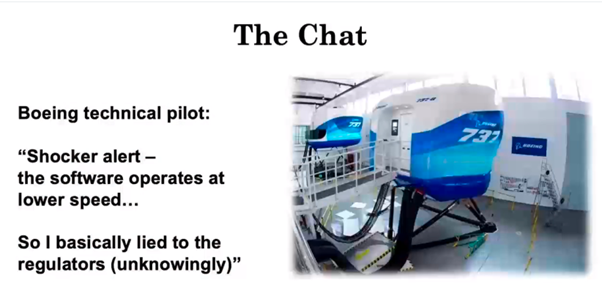
“I blew up that comment and put it on my wall,” Gerger said. “I looked at it every day for weeks. I didn’t know what to do with it.”
“Imagine if the government got every text and chat and voicemail in your entire life. Would they find something sarcastic? Or something you later realized you were wrong about, but you didn’t go back and change your earlier text?
It fell to Kearney in closing arguments to address Forkner’s comment. He said what Forkner had actually discovered was not a flaw in the cockpit software but a glitch in a flight simulator Boeing was using to test the cockpit control system: The simulator wasn’t accurately simulating how the software would operate under true flight conditions.
Gerger’s defense case lasted 30 minutes. He called one witness, a Boeing test pilot who confirmed that Forkner had submitted a report of a simulator malfunction and that the simulator was subsequently fixed.
“Our client hadn’t seen what he thought he’d seen when he wrote that text,” Gerger said. “He was wrong. He hadn’t lied.
“And he was acquitted in 90 minutes.”
The Wall Street Journal reported that as Forkner and his lawyers left the courthouse, they encountered a juror from the trial.
“It was an easy decision,” the juror told Forkner
***
In addition to discussing the DaVita and Boeing trials, Gerger, Melsheimer and Judge Brown touched on an array of lessons learned from their combined century and change trying cases and observing others do so. A sampling:
The (Presumed) Presumption
MELSHEIMER: My experience is that most jurors in a criminal case walk into court for the first time for voir dire, and they look over at the defense table and say, “I wonder what he did?” And then they hear the indictment read, and they say, “Oh, that’s what he did.” It’s a challenging thing for the defense to overcome. Yes, the state’s burden of proof is high. But some jurors have an idea that they’re there to convict someone of a crime, After all, that’s what the government brought them there to do.”
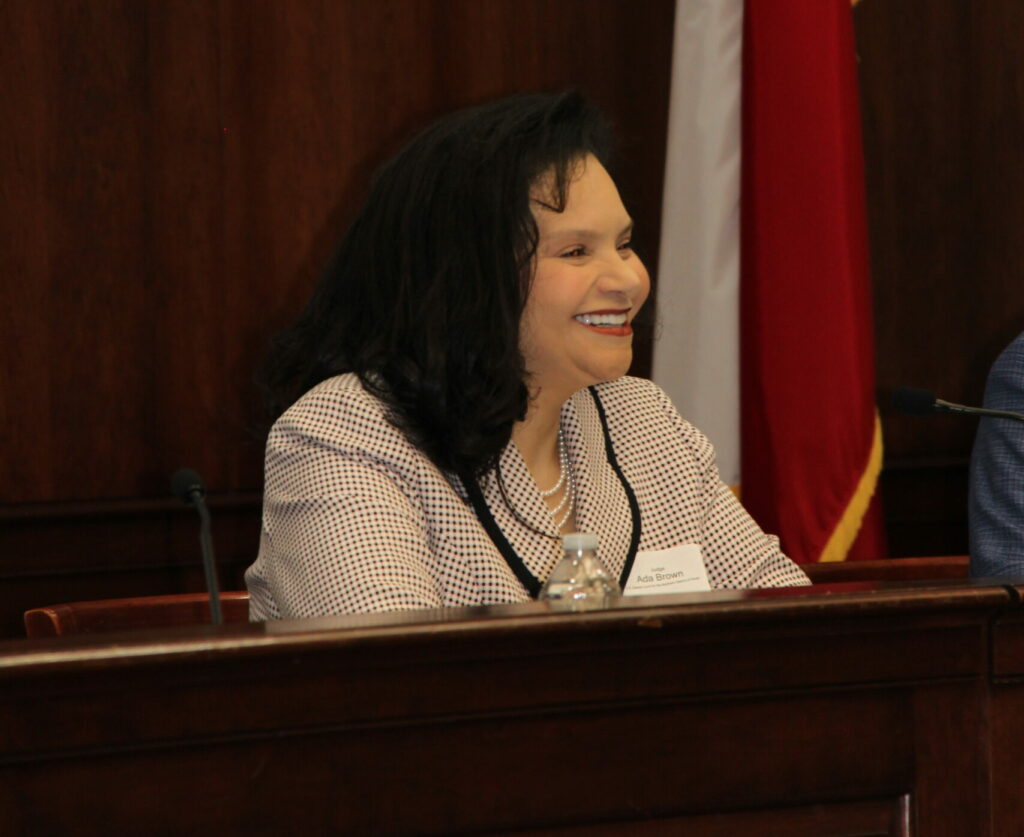
BROWN (pictured right): That’s why, even if you’re in front of a judge who traditionally does their own voir dire, you might want to ask them if you can ask this one question: “Can you as a juror start off believing my client is innocent?” That question is so fundamental to whether someone is going to be a good juror or not, and I think it should come from the lawyers.
I tell jurors during voir dire, “I will instruct you on the law at the end of the trial. I’ll instruct you that the government does the accusing, they must do the proving, and the defendant sits here today as innocent. Can everyone here presume him innocent?”
And everyone says what to a federal judge? “Yes. Yes.” We don’t hear “No” very much.
The Jitters
GERGER: I still get nervous before every trial. I once called Michael Tigar, one of my law professors who is kind of like the LeBron James of the generation above us in criminal law.
I said, “Professor Tigar, how is it that you’re always so cool in court?” He
Said, “David, don’t kid yourself. Lawyers are bundles of ego suspended above an abyss of uncertainty.”
JUDGE BROWN: It may surprise you to learn that at least one judge I know gets nervous before every hearing. I want to be the best judge I can for you. I know the stakes are high and both sides are counting on me to be a good referee. I can always feel the pulse in my neck when I take the bench.
Don’t Con Jurors, Convince Them
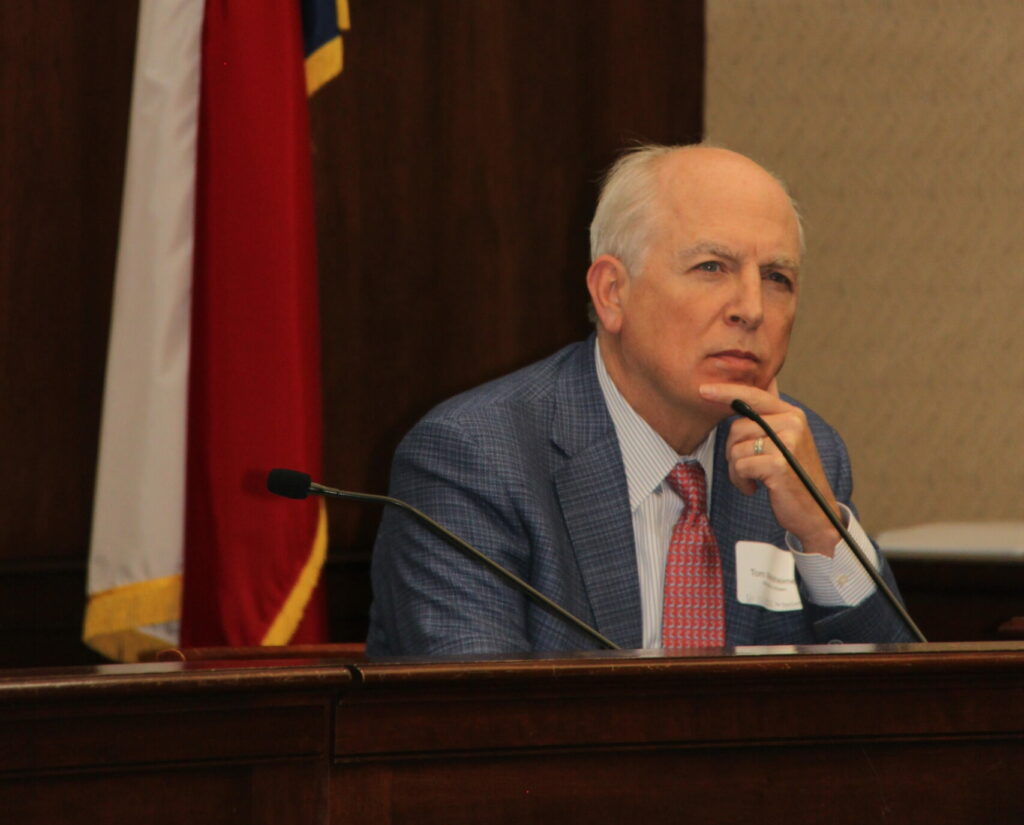
MELSHEIMER (pictured right): There’s a saying that a trial is a race to credibility. As counsel, you have to maintain your credibility. You can’t take positions in front of the court or the jury that are not credible positions, or you will lose jurors. They’ll conclude they can’t trust you. When you tell the jury, “Hey, you need to look at it this way,” or, “Here’s another way of looking at it,” they have to know you’re not someone trying to pull the wool over their eyes.”
The Glass Half-Full
GERGER: Strive to present a positive theme. It shouldn’t be, “My client didn’t lie,” or, “He’s not guilty.” Frame it as a positive: “He told what he knew,” or, “Everyone at the FAA knew that.”
Those Jackals in the Media
GERGER: In the Boeing case, we had a lot of trouble with [misreporting in] the media. I don’t mean The Texas Lawbook, but other media.
MELSHEIMER: You have to ignore it, or it’ll drive you crazy. Sometimes, the news coverage in a complex case reflects a complete lack of understanding of what the proceedings are about. I try to just filter that stuff out.
Any time you’re not spending on your trial is time not well spent. A high-profile client may not see it that way, and then you’re going to have to devote some time to the media. But the truth is, your client’s fate is going to be determined by what happens in the courtroom, not what happens in the media.
GERGER: I agree, but some lawyers I respect tremendously — great, great lawyers like Rusty Hardin in Houston, Jim Sanders in Nashville, Bill Taylor in Washington — are able to deal effectively with the media. I’m just not able to do it. I don’t know how.
In the Boeing trial, our advisors said, “You have to say something.” So we put out one sentence, hoping it would get picked up with the least chance of being misquoted.
JUDGE BROWN: What was the sentence?
GERGER: I don’t remember.
JUDGE BROWN: The Northern District has a general policy that we don’t allow cameras in court. I can tell you that had we not had that policy, it would be my policy anyway. I think there’s sometimes a tendency for judges and lawyers to become actors when the cameras are on. Then maybe things don’t go the way they should.
Should Your Client Testify?
MELSHEIMER: It’s the defendant’s call, not mine, but generally, I don’t think they should. That rule is subject to exceptions and exemptions, of course.
When a defendant testifies, the case becomes all about the defendant’s credibility. When the defendant doesn’t testify, it’s more about the lawyer’s credibility. I can take that burden off my client.
Mr. Thiry wanted to testify. He wanted to clear his name. He was an immensely successful and respected CEO. He had taken DaVita from the precipice of bankruptcy and turned it into one of the largest healthcare companies in the United States. Like a lot of white-collar defendants, he thought, “If I can just explain this, I’ll be exonerated.” [In the end, Thiry did not take the stand.]
GERGER: This is a philosophical question that I don’t know how to answer. A defendant doesn’t get to decide much about his or her case. There are only two decisions the defendant has a legal right to make: whether to plead guilty and whether to testify.
If a defendant says 10 perfect things on the stand and one thing the jury doesn’t believe, they’re going to suffer. It becomes a test of perfection.
Percy Foreman used to tell clients, “Your brain got you into trouble, let my brain get you out of it.” Edward Williams said a defendant has to testify. And Mike Tigar, his great protégé, said a defendant should never testify. “Better the jury thinks you’re a crook,” he’d say, “than you open your mouth and confirm it.”
In the Boeing trial, many friends said our client had to testify and explain his lied-to-the-regulators text. He did not testify. Things worked out fine.
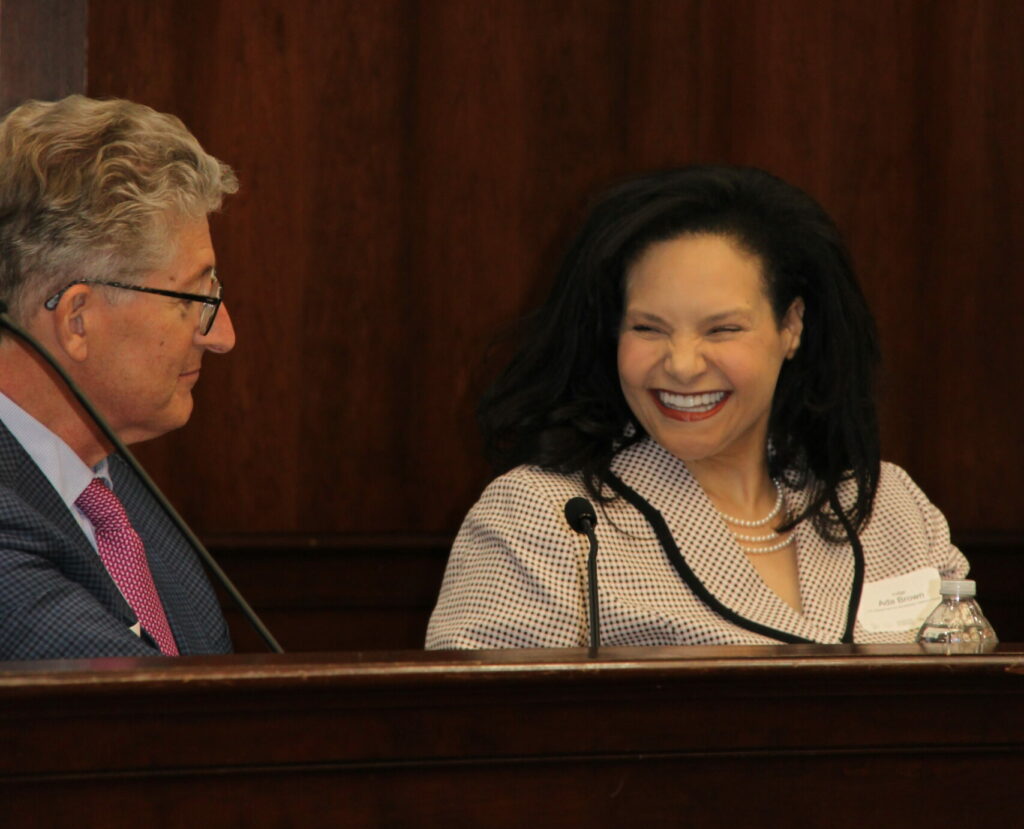
David Gerger and Judge Ada Brown
JUDGE BROWN: I agree that when a defendant testifies, it does kind of make the trial all about him. I watched [now-convicted double-murderer] Alex Murdaugh’s testimony. It was like watching a train wreck. I remember thinking when he cried, “I don’t see any tears.” And when he would turn to face the jury, it looked rehearsed.
GERGER: Here’s a practice tip: If you have a case in which you know your client will testify, use that as opportunity to make an impact in your opening statement. Tell the jury something like this: “You heard the judge tell you my client does not have to testify. You can’t hold it against him if he doesn’t testify. You can’t even discuss the fact that he didn’t testify. We are required to present nothing.
“But I’m telling you, and the bailiff, and the judge, and the marshal, that as soon as he can, my client is going to walk those 12 steps and get on that stand and testify. And I hope the prosecution calls him!”
Do You Know Why You Win or Lose a Case?
GERGER: No. Lawyers think we know why we win, but we don’t. A trial is a drama with a life of its own.
MELSHEIMER: I agree. I always think I’m very lucky to have won. You think you have reasons why you’ll win and sound strategies you’ll employ, [but] at the end of the day can you ever really point to one exact moment? The best lawyers have the humility to say they really don’t know.
Should Jurors Be Allowed to Question Witnesses?
MELSHEIMER: I think it’s great. In the DaVita trial, Judge Jackson allowed jurors to submit written questions to him. Subject to his review and that of the lawyers, he would then read the appropriate ones to the witnesses. More than 100 questions in that trial came from the jury.
It was very, very useful to us because it was a window into what the jurors were thinking. And sometimes they ask questions I wish I’d thought of.
JUDGE BROWN: Also, if jurors know they can ask questions along the way, they’re likely to listen more intently.
GERGER: I’ve never had a juror ask questions. But I have put a juror to sleep. When I approached and told the judge, “Your honor, Juror No. 3 is asleep,” he said, “You put her to sleep, you wake her up.”
=================
Tom Melsheimer represented Kent Thiry in USA v. DaVita Inc. et al, 1:21-cr-00229-RBJ-2 in the District of Colorado.
David Gerger represented Mark Forkner in USA v. Forkner, 4:21-cr-00268-O in the Northern District of Texas.
A video of their presentation “Bad Case/Good Outcome: Defending (and Winning) When the Government Comes for Your Client” can be found here.
